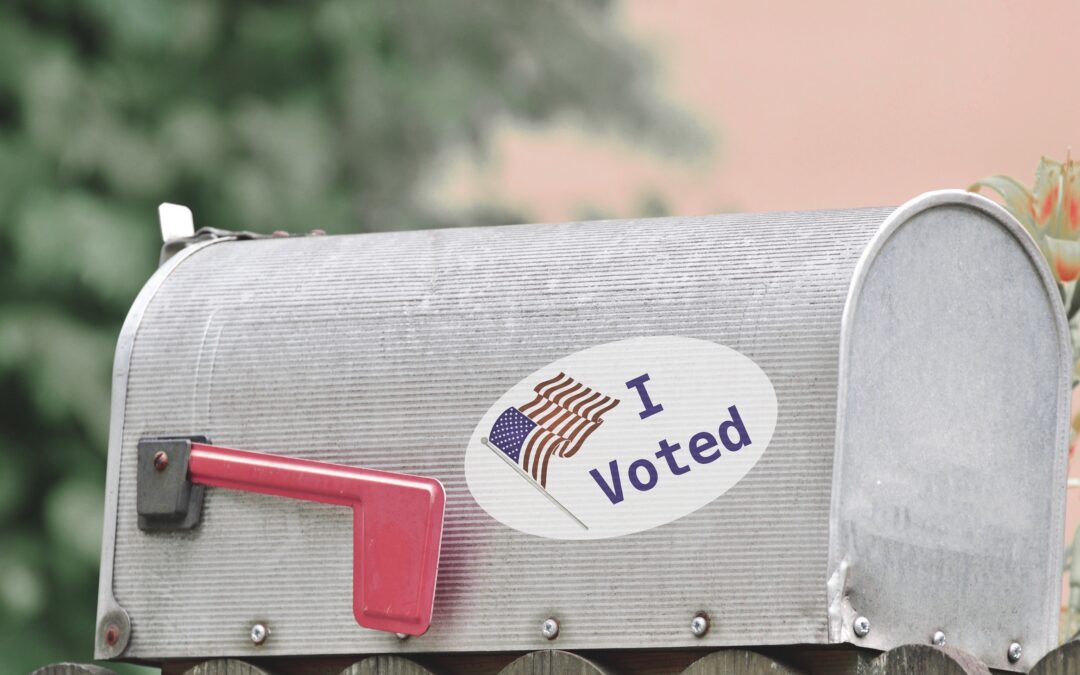
by admin | Jun 21, 2024 | News and Updates, Tax
Last weekend, the Arizona legislature completed its constitutional duty and finally passed a state budget, concluding its business for the year. Looming over the entire process was a budget deficit that needed to be filled—fluctuating from around $1.6 billion to just over $2 billion over the 3-year budgeting period.
Though the left and the media wanted to blame historic tax cuts and landmark school choice expansion for the shortfall, the real problem was record spending that resulted in Arizona’s budget growing by over 50% in the last five years. So, when lawmakers gaveled into session in January, the solution was to right-size state spending. Our organization even provided a roadmap for a successful budget process:
- Cut spending to align with current and future funding projections
- Don’t raid the rainy-day fund
- Don’t use budget gimmicks to balance the sheets
- Don’t roll back our school choice programs
- Don’t raise taxes
So how did the legislature do? Here is a breakdown of the good and the not so good results from the budget:
The Good
Big picture, the package resolves the expected deficit and balances the budget. It did so largely with an across the board cut of roughly 3.5% in ongoing spending for state agencies, removing some prior one-time spending items, and largely sweeping surpluses in various funds to the tune of $714 million (more on that later).
Slush Fund Swept at Arizona Commerce Authority
Of those, the budget swept $57 million from the Arizona Competes Fund, which exists as a slush fund for the Arizona Commerce Authority (ACA) to hand out grants to corporations. Of all the problematic programs administered by the ACA, the Competes Fund is the most apparent violation of the Arizona gift clause, which we have written about extensively.
Protecting School Choice
Hobbs came into this session (just as the last) with her top priority being regulating the wildly popular ESA program out of existence. Despite the noise from Hobbs, legislative Democrats, and their pals in the media, the budget does not place any limitations on how many students can obtain an ESA, even though Hobbs wanted to force thousands of students back into government-run schools.
The budget did include minor changes to the program, such as requiring fingerprinting for teachers and staff with unsupervised access to students at qualified schools (mirroring existing requirements for schools who accept STOs), limiting audits on families to no more than once every five years, and allowing for reimbursements of expenses instead of requiring only the use of Class Wallet. This leaves the program largely untouched, despite the fuss and strong posturing since its passage in 2022—from a failed referendum attempt, to a failure to place any limitations last session, and now a failure to restrict it this year.
Several Measures Referred to the Ballot
Further, as part of passing the budget, legislative Republicans also sent four more measures to the November ballot. Among those is SCR 1041 which protects our ballot from unconstitutional measures by allowing for legal challenges before the election, SCR 1040 to protect tipped wage earners, and SCR 1012 which requires legislative authorization before any agency regulation that will cost $500,000 is implemented.
The Not So Good
Fund Sweeps
However, as mentioned earlier, the largest mechanism used to balance the budget was sweeping funds, including many that are funded from fees charged for occupational licenses. These fees are paid by regulated professionals, and surpluses in the fund imply that they are being overcharged. Those surpluses should be returned to the professionals who paid excessive fees, not swept to balance the budget. That said, the budget prevents fee increases from these boards for the next two years, which is a solid protection to ensure they do not turn around and further burden regulated professionals to refill their coffers.
Lack of Executive Oversight
There were also some missed opportunities this session, specifically in holding the executive branch accountable. Last session, the Arizona Senate held firm in doing thorough investigations of Hobbs’ agency nominations, to the point that she rescinded them all and resorted to breaking the law to avoid the Senate confirmation process. Similar to nominating the directors who run her agencies, this session brought many of those agencies that were set to automatically terminate without a legislative continuation, providing an opportunity to continue that track record and ensure accountability. Among those were the ACA and the Arizona Department of Transportation.
No Agency Reforms
While it was good to sweep the large stockpile of cash at the ACA in the Competes Fund, the Authority was continued for five years without any substantive reforms. Most critically, there was no statutory test to protect taxpayer dollars from unconstitutional expenditures. Similarly, ADOT received an 8-year continuation, excluding the reforms included in a bill that passed the Senate earlier in session that would have prohibited them from conducting DEI trainings, developing “Climate Action Plans,” and building electric vehicle charging stations.
No Action on Kris Mayes Report
There was also no real action in response to a thorough report from the House Executive Oversight Committee finding “that Attorney General Kris Mayes has abused power, neglected legal duties, and committed malfeasance in office.”
An Acceptable Budget with Divided Government
Given the dynamics that were at play—a budget deficit, divided government, and the specter of election year politics looming over the process—this was an acceptable package that won’t give anyone buyers’ remorse in a few years. It did cut spending, it did protect school choice, it didn’t touch the rainy-day fund, and it didn’t raise taxes.
So all-in-all, enough was accomplished to continue to feel good about the future prosperity of our state.
Help Protect Freedom in Arizona by Joining Our Grassroots Network
Arizona needs to have a unified voice promoting economic freedom and prosperity, and the Free Enterprise Club is committed to making that happen. But we can’t do it alone. We need YOU!
Join our FREE Grassroots Action List to stay up to date on the latest battles against big government and how YOU can help influence crucial bills at the Arizona State Legislature.

by admin | Jun 13, 2024 | Misc, News and Updates
June has been off to a brutal start for Arizona Governor Katie Hobbs. She kicked off the month by breaking her own hiring freeze to bring in a new press secretary. Then, a few days later, a Maricopa County Superior Court judge ruled that Hobbs violated the law when she sidestepped the Senate’s confirmation process for agency directors. And to top it all off, an eye-opening report was released uncovering an alleged pay-to-play scheme between Hobbs and an Arizona group home.
This shouldn’t come as much of a surprise. After all, this is the same Katie Hobbs who broke the law to take credit for the Republican tax rebate. And it’s the same Katie Hobbs who required the nonprofit behind her $30 million medical debt relief program to give her credit. But this latest scandal shows that Hobbs’ corruption has reached a new level.
According to the report, Sunshine Residential Homes has donated approximately $400,000 toward the Arizona Democratic Party, Hobbs’ gubernatorial campaign, and her inaugural fund. And what did the group home receive in return? A nearly 60 percent rate increase! And this was at a time when the Arizona Department of Child Safety (DCS) cut loose 16 providers, and no other standard group home provider received a rate increase.
That’s convenient.
Sunshine Residential Homes could potentially receive millions of dollars more at the taxpayers’ expense from their investment (sorry…donation). And that must have their CEO—who also happened to serve on Hobbs’ inaugural committee—excited.
Hmmm…Hobbs’ inauguration fund. Do you remember that?
This entire saga began when Hobbs set up a shady inaugural slush fund to provide donors with a conduit to buy political favor from her administration. While setting up and managing the fund, Hobbs illegally used public resources—like the state’s website—to solicit money for her inauguration. And she also tried to stop the disclosure of the names of those who donated to her inaugural fund.
But after immense political pressure and public records requests filed by groups like the Arizona Freedom Foundation (who operates AZ Free News), Hobbs finally released the names of the donors. And lo and behold, guess which group was among those listed? Sunshine Residential Homes Inc., which at the time made a donation of $100,000. But this is just one part of the story.
After raising huge sums of money for her inauguration, Hobbs and her administration only spent a small fraction of it for that purpose. At the time, it was reported that Hobbs brought in $1.5 million from approximately 120 donors for an inaugural event that cost less than $210,000.
So, what happened to the rest of the money? It’s clear that Hobbs and the Democrats plan to spend it on legislative races this November all while using the fund as nothing more than a quid pro quo factory on the Ninth Floor.
This must be stopped, and a criminal investigation into this matter is absolutely necessary. So far, Arizona Attorney General Kris Mayes and Maricopa County Attorney Rachel Mitchell have announced that they will investigate. But Mayes should be nowhere near this investigation. She has proven time and time again that she will do whatever it takes to protect Hobbs and the Democratic party from any real accountability—which is probably why she’s pushing so hard for Mitchell to stand down. And it’s also probably why Hobbs refuses to answer questions about whether she would comply with both a Mayes and Mitchell investigation.
Hobbs knows she’s in trouble, and she’s big mad that this scandal has been exposed. But her good buddy Mayes can’t be allowed to bail her out this time.
Rachel Mitchell should not only be the one to conduct the investigation, she should step in immediately to freeze the assets.
Hobbs’ inaugural slush fund is still in existence and sitting on a mountain of cash. She’s planning on spending contributions from this fund—which is under criminal investigation—on political campaigns in the coming months. This can’t be allowed.
From its inception to today, Hobbs’ inaugural fund has been a monument to corruption and abuse. And while the funds should probably just be refunded to the initial donors, that’s impossible now that it’s all under criminal probe.
It’s time for Rachel Mitchell to freeze these funds pending the outcome of the investigation. Giving taxpayer dollars to political donors is a severe misuse of public funds. And it should not be taken lightly. Mitchell should stop donors from cashing in on the Hobbs gravy train and give Arizona taxpayers the accountability they deserve from their government leaders.
Help Protect Freedom in Arizona by Joining Our Grassroots Network
Arizona needs to have a unified voice promoting economic freedom and prosperity, and the Free Enterprise Club is committed to making that happen. But we can’t do it alone. We need YOU!
Join our FREE Grassroots Action List to stay up to date on the latest battles against big government and how YOU can help influence crucial bills at the Arizona State Legislature.

by admin | Jun 11, 2024 | Corporate Welfare, News and Updates
There are plenty of problems with the Arizona Commerce Authority. Since its inception in 2011, criticisms were raised concerning its freewheeling powers to dole out taxpayer money with practically no legislative oversight and broad exemptions from important guardrails such as the prohibition of using outside counsel (rather than the Attorney General’s office.) These issues have resurfaced over the years in critical Auditor General reports that have highlighted the insufficient reporting and record keeping for the administration of grants and awards provided by the agency to private businesses. This led to a mere 2-year extension of the agency in 2016, and a controversial reauthorization in 2018 when Republicans and Democrats alike banged the table for reforms. And most recently, the agency has come under fire by the Attorney General herself, for unconstitutional gifts in the way of wining and dining and Super Bowl tickets for CEOs.
Despite consistent criticism across the aisle and over the years, the ACA has evaded any real substantial reforms. That could very well change this year.
There now seems to be bipartisan interest in reining in an unaccountable agency with a $226M budget and a multi-million-dollar slush fund. Additionally, Republicans are unhappy that the ACA has been utilized by Governor Hobbs to pursue radical goals on abortion, water, and social equity…(digital equity plan). Democrats, on the other hand, must straddle support for a Hobbs-regime that is at cross purposes with purported opposition to corporatism and degradation of tax revenues that could be used elsewhere.
So, the question isn’t whether the ACA will be reformed this session, but which reforms will ultimately be adopted.
Among the reforms being considered, by far the most important and inarguable is a statutory “test” on the Gift Clause. Arizona’s constitution includes a protection for taxpayers from the “depletion of the public treasury or inflation of public debt by engag[ing] in non-public enterprises or by giving advantages to special interests.” This critical protection called the Gift Clause has been litigated over the years, yet arguably, the most important ruling occurred in 2021, well after the ACA was formed. The Schires Decision put forth a two-part test to clarify when an expenditure tripped the line into a Gift Clause violation. First, an expenditure must serve a public purpose, admittedly a low and subjective bar, according to the court. And secondly, the “the value to be received by the public is far exceeded by the consideration being paid by the public.” Schires clarified that, “relevant ‘consideration’ consists of direct benefits that are ‘bargained for as part of the contracting party’s promised performance’ and does not include ‘anticipated indirect benefits.’”
In other words, the customary “economic impact” metrics used by the Commerce Authority are not relevant factors to satisfy consideration, including tax revenues generated by the private business, as the court argued calculating such factors would “eviscerate the Gift Clause” altogether. Instead, the ACA must receive a “bargained-for benefit as part of the private party’s performance, and the payment of public funds must not be grossly disproportionate to the fair market value of that benefit.”
The Arizona Commerce Authority is in blatant violation of the Gift Clause and most urgently needs reform to ensure its compliance going forward. The bill that passed out of Senate Government on March 21 includes just that, codifying the Schires test in statute and obligating the ACA to analyze all grants and loans accordingly. A failure to adopt this obvious reform this session would be total neglect by the legislature, it would invite litigation of nearly all the Authority’s programs and leave the decimation of the Authority to the courts.
Additionally, the bill reformed all current refundable tax credits (Qualified Facilities, Research and Development, and Film tax credits) administered by the Authority by making them non-refundable. This would ensure these programs comply with the Gift Clause as the refundable portion of the credit is, strictly speaking, a subsidy, for which statute currently does not require bargained-for benefits to receive.
Aside from these two most critical reforms to simply ensure the agency is constitutional, the legislature should prioritize making the agency more transparent in its reporting by defining its terms of performance, give small businesses and taxpayers a voice in its administration by diversifying the board of directors, and eliminate exemptions that make the agency less accountable, including allowing them to have their own in house counsel and permitting them to compete with the private industries. Moreover, the Authority could provide invaluable information to policymakers and businesses alike if they were required to focus their resources on monitoring the tax and regulatory environment, especially locally, as often those are the most important factors considered by businesses for location and relocation.
With no shortage of legal and functional problems at the Arizona Commerce Authority, lawmakers should seize on the opportunity to pass long-overdue reforms this year.
Help Protect Freedom in Arizona by Joining Our Grassroots Network
Arizona needs to have a unified voice promoting economic freedom and prosperity, and the Free Enterprise Club is committed to making that happen. But we can’t do it alone. We need YOU!
Join our FREE Grassroots Action List to stay up to date on the latest battles against big government and how YOU can help influence crucial bills at the Arizona State Legislature.

by admin | Jun 4, 2024 | Elections, News and Updates
PHOENIX, ARIZONA – Late last week, Scot Mussi, the President of the Arizona Free Enterprise Club, filed a lawsuit in the U.S. District Court for the District of Arizona over the State’s failure to comply with Section 8 of the National Voter Registration Act (NVRA), which requires states to “conduct a general program that makes a reasonable effort to remove the names of ineligible voters from the officials lists of eligible voters by reason of … (A) the death of the registrant; or (B) a change in the residence of the registrant” to maintain accurate voter-registration records in a uniform manner across the state.
“Election integrity is a serious issue in our nation,” said Mussi. “Ensuring that Arizonans can have faith in the integrity of our election system and representative government starts with clean voter rolls that leave no doubts about who is able to cast a ballot. That’s why we sent a prelitigation notice to Secretary Fontes last August highlighting the artificially high voter registration rates. Unfortunately, most Arizona counties continue to have voter registration rates far exceeding the national average. We hope that the court compels Secretary Fontes to comply with his obligations under the NVRA to clean up Arizona’s voter rolls.”
Joining Mussi as Plaintiffs in this challenge are the Chair of the Republican Party of Arizona, Gina Swoboda, and Steven Gaynor.
In their lawsuit, the Plaintiffs argue that Arizona Secretary of State Adrian Fontes has failed to perform his mandatory list maintenance duty under the NVRA. For example, the most recent voter registration and census data show that up to four Arizona counties – Apache, La Paz, Navajo, and Santa Cruz – have more registered voters than eligible citizens. The remaining counties across the state have implausibly high voter registration rates that far exceed the average national and statewide voter-registration rates in recent years. Consistent with these artificially high registration rates, the complaint alleges that Arizona has at least 500,000 registered voters on the rolls who should have otherwise been removed because they are deceased or no longer reside in Arizona.
The Plaintiffs ask the federal court to find that Secretary Fontes is in violation of Section 8 of the NVRA, and to require the Secretary to fully comply with any existing procedures Arizona has in place to ensure ineligible voters are identified and removed from the rolls.
Read the complaint here.

by admin | May 23, 2024 | Misc, News and Updates
Nobody likes a bully, and yet some people relish playing such a role. Here in Arizona, perhaps no person has taken on that persona quite like Kris Mayes. When she began her political career with the Arizona Corporation Commission, Mayes quickly gained a reputation for bullying other people around, but since becoming Arizona’s Attorney General (AG) in January 2023, she has taken it to a whole other level.
Within months of occupying the AG office, Mayes began using her post to target and investigate the very people and entities she is constitutionally obligated to defend. First in her crosshairs was the Arizona Department of Water Resources (ADWR), a state agency she is legally obligated to represent and provide legal advice to. But because she wants to score political points with her radical environmental allies, she decided to threaten legal action against ADWR unless they provide her with documentation showing that the agency is in compliance with its water management responsibilities.
Mayes then turned around a few weeks later and went after the Empowerment Scholarship Account (ESA) program at the Department of Education. In a public tirade, she falsely claimed that the budget agreement that protected universal school choice would bankrupt the state, despite the expenditure data showing that the ESA program actually saves the state money. When that didn’t stop the Republican budget bill from being signed by Governor Hobbs, Mayes doubled down on her ESA assault by threatening legal action against her own client, the Arizona Department of Education, over the program.
And now that she has had more time to get comfortable in office, Mayes is discovering new and creative ways to abuse her power, including collusion and the usage of dirty tactics to target political opponents.
Mayes Colluded with Cochise County Attorney to Pursue Indictments Over the Election Certification
Last year, the State Bar began investigating Cochise County Attorney Brian McIntyre for a possible violation of attorney-client privilege with his clients the Cochise County Board of Supervisors. And it proved to be quite revealing.
According to a letter recently submitted as evidence to the State Bar, McIntyre appears to have colluded with Secretary of State Adrian Fontes and AG Mayes against Cochise County Supervisors Peggy Judd and Tom Crosby. In the letter, McIntyre asked Mayes to retract an opinion set by her predecessor, Mark Brnovich, on expanded hand counts. But this request was made while McIntyre’s clients were actively appealing to be able to complete those hand counts. That’s a big no-no.
But did Kris Mayes stop him? No. Several months later, Mayes withdrew Brnovich’s opinion as requested by McIntyre. And then, in November of last year, she secured indictments against Judd and Crosby for delaying certification of the 2022 elections results—charging them with felonies for election interference and conspiracy. That’s an outrageous abuse of power, but Mayes’ overreach didn’t stop there.
Mayes Used Dirty Tactics to Secure Indictments Against Alternative Slate of Electors
Last month, an Arizona grand jury indicted a slate of alternate electors for the 2020 election and hit them with charges of conspiracy, fraud, and forgery. But according to a new report from Politico, these indictments were unprecedented and “unusually aggressive.”
And who do you think was leading the probe? Kris Mayes.
One witness described the questioning as “intense” and having “exceeded the limited scope that prosecutors had publicly acknowledged.” On top of that, some of those indicted were promised by prosecutors that they were not the subject of the investigation nor any charges.
But that proved to be a lie. Just ask one of President Trump’s lawyers, Jenna Ellis, for example. According to the report, Mayes’ prosecutors asked Ellis to appear for a “free-talk interview.” And a prosecutor in Mayes’ office even indicated in a letter that Ellis was not the target of the State’s investigation. But after a follow-up letter to arrange an interview reiterated as much, Ellis was indicted just four days later. And the same thing happened to another of Trump’s attorneys, Christina Bobb.
That’s low…and dirty. And you would think that our own corporate media, like the Arizona Republic, would be on top of such a revealing news story, but no. The Republic is so infatuated with Mayes that it would rather write glowing puff pieces about her while national news outlets and other alternative media blow the whistle on such government overreach.
The reality is that all of this should be more than enough to conduct a deep dive into the actions of AG Kris Mayes. And while the legislature may have started an investigation into her prosecutorial conduct, our court system and the Bar Association need to hold her accountable as well. All of this stinks, and if our legal system is really concerned about setting precedent and protecting norms, then these types of actions by a prosecutor need to be stopped.
Let’s start with Kris Mayes.
Help Protect Freedom in Arizona by Joining Our Grassroots Network
Arizona needs to have a unified voice promoting economic freedom and prosperity, and the Free Enterprise Club is committed to making that happen. But we can’t do it alone. We need YOU!
Join our FREE Grassroots Action List to stay up to date on the latest battles against big government and how YOU can help influence crucial bills at the Arizona State Legislature.

by admin | May 21, 2024 | Elections, News and Updates
Who thinks it is a good idea to let voters decide which candidates appear on the general election ballot? Probably everyone. How about letting just one politician decide instead? You would hope that question is rhetorical, and the answer is no one. But right now, out-of-state special interests are spending millions of dollars to put their so-called “Make Elections Fair” measure on the ballot that would do just that.
The groups pushing these ideas are trying to trick voters into signing their petitions and supporting their poorly written constitutional amendment, arguing it will lead to less partisanship and more centrist candidates on the general election ballot. But hidden in the measure is a provision that lets just one politician, the Secretary of State, decide how many candidates move from the primary to the general election.
And it isn’t limited to just some elections. Under the measure, the Secretary of State would have the power to decide for every single election on the ballot, including his own! The Secretary of State could go up and down the ballot, selecting just two candidates for the general election in one race, then select three, four, or five in another when only one candidate can win in the general.
It gets even more confusing when two candidates can win the general election for two seats (like for the State House). The Secretary of State can select four candidates for one race, but seven in another, picking and choosing all the way up and down the ballot for every single race however many candidates would most benefit his own political party.
How about his own race? If it is better for him to go head-to-head with just one opponent, he can unilaterally declare that just two candidates will be on the ballot. But if it is better to “crowd the field,” he can let five candidates show up on your ballot to have his opponents fight with each other while he sneaks his way to victory.
This new candidate selection scheme would be in addition to the fact that their measure will result in some races where candidates from only one political party appear on the general election ballot, depriving many voters of any choice at all. If this sounds familiar, it’s because California uses this exact same system to select its candidates. That’s right. The proponents are trying to fix Arizona’s election system by bringing in ideas from San Francisco.
When the legislature writes election laws, their bills have to pass through two legislative chambers consisting of 90 different lawmakers elected from every corner of Arizona. There are committee hearings, public testimony, amendments, recorded votes, and then the Governor has to approve it too.
But according to the proponents of this measure, what is “fair” is removing all those checks and balances and just consolidating all power into the hands of one politician so he can install a confusing system no one wants.
California politicians like to pick their opponents. In Arizona, we like to let the voters make that choice. Placing all power in the hands of one politician isn’t fair, it won’t lead to more centrist candidates, and for a group that purports to support and defend “democracy,” this is one of the most undemocratic measures ever written.
But the drafters of this measure likely don’t care. Their goal is to buy their way onto the ballot, then hope voters won’t discover all the easter eggs they hid in the initiative. No question that this is a very cynical strategy that speaks volumes about their low opinion of voters, but given that they thought it was a good idea to give one politician the power to pick their own opponents, it shouldn’t come as a surprise.
Help Protect Freedom in Arizona by Joining Our Grassroots Network
Arizona needs to have a unified voice promoting economic freedom and prosperity, and the Free Enterprise Club is committed to making that happen. But we can’t do it alone. We need YOU!
Join our FREE Grassroots Action List to stay up to date on the latest battles against big government and how YOU can help influence crucial bills at the Arizona State Legislature.







Recent Comments